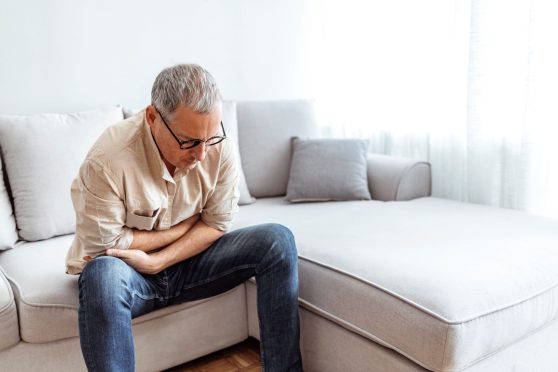Lisa Pepin struggled with kidney stones for 20 years, going to Backus Hospital’s Emergency Department for relief when they get particularly bad.
But when her condition worsened during the pandemic, she emerged from one particular hospital visit with a connection she believes “saved her life.” After that visit, the Canterbury woman received a phone call from Bethany Buckridge, nurse navigator for the Tallwood Urology & Kidney Institute Stone Center.
“She was the first person who listened to me and what I was going through,” Pepin recalled.
That connection and the knowledge that Buckridge was her advocate, quickly arranging appointments with a Stone Center specialist, was more helpful than surgical stents and other treatments she’s had through the years.
“She asked me, ‘What can we do?’” Pepin said. “It’s been a journey, but she is the most wonderful person. If I have a question, she finds an answer. Before, I’d call and didn’t feel supported. They didn’t know me the same way she does. She has changed my life.”
> Connect with the Tallwood Urology & Kidney Institute Stone Center.
The biggest difference for patients
It’s all part of the job, Buckridge said. As a nurse navigator, she works with 1,000 to 1,200 kidney stone patients every year, calling them within one day of their ED visit to either Backus or Windham Hospital, and getting them in to see a specialist within five days.
But, it’s the conversation and counseling done over the phone that makes the biggest difference to patients like Pepin.
“There is a lot of emotional support going on. These are people who are scared because it’s a type of pain they’ve often never felt before in their lives,” Buckridge said. “I reassure them that they did the right thing going to the hospital, then I review their visit with them because, between nervousness and the pain, they were not really hearing what they needed to hear in the ED.”
Questions answered
During her calls, Buckridge runs through points like:
- What to expect in the coming days
- Why they’re taking certain medications
- What will happen during the urologist visit
- How to catch stones that pass in the urine with a strainer
- Suggestions on how to prevent future kidney stones from developing
- Signs they should return to the hospital
> Want more health news? Text StartHere to 85209 to sign up for text alerts
A touchpoint throughout treatment
Her intervention continues as patients come to the Stone Center for care. She follows up by phone to see if a stone has passed, a process that takes about 30 days, and she reconnects if more stones form. A more immediate source of answers, she prevents many patients from returning to the ED.
“I become a touchpoint throughout their entire treatment, holding their hand and guiding them throughout the process,” Buckridge said, noting her work is different than nurse navigation in other specialties. “With cancer, for example, navigators order tests, schedule appointments with specialists, and provide support through survivorship. My interactions are truly more intimate and focused on one specific need, their kidney stones.”
Providers appreciate the groundwork she lays for them.
“They know exactly what’s going on when the patient comes in so they can tailor the conversation,” Buckridge said.


